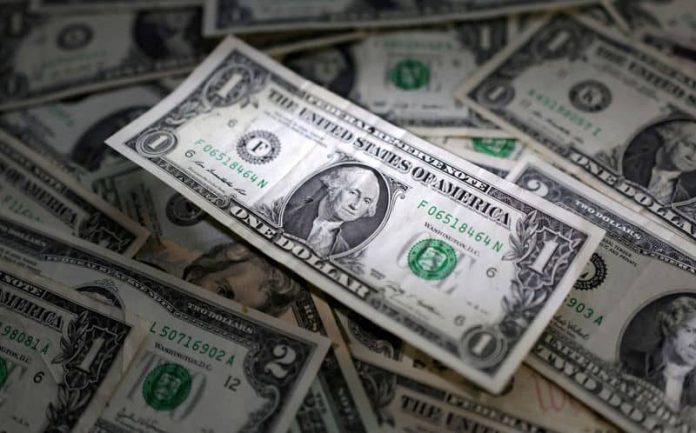SINGAPORE (Reuters) – The U.S. dollar eased on Tuesday against a basket of major currencies but did not drift far from a two-month peak, after a deal over the U.S. debt ceiling lifted risk sentiment, although the agreement could face a rocky path through Congress.
The dollar index, which measures the U.S. currency against six major peers, fell 0.02% to 104.28, not far from the two-month high of 104.42 it touched on Friday. The index is set to end the month with a gain of 2.5%.
A handful of hard-right Republican lawmakers said on Monday they would oppose a deal to raise the United States’ $31.4 trillion debt ceiling.
The opposition highlights the hurdles that Democratic President Joe Biden and top congressional Republican Kevin McCarthy will face to get the package through the Republican-controlled House of Representatives and Democratic-controlled Senate before the limit is reached, likely by next Monday.
“It is as if the two political parties in the U.S. are playing a game of chicken and daring the other side to capitulate,” said Marc Chandler, chief market strategist at Bannockburn Global Forex in New York.
“Still, a higher debt ceiling and some reduction in spending in the FY24 budget are the middle ground.”
The 99-page bill would suspend the debt limit through Jan. 1, 2025, allowing lawmakers to set aside the politically risky issue until after the November 2024 presidential election. It would also cap some government spending over the next two years.
U.S. Treasury Secretary Janet Yellen said on Friday that the government would default if Congress did not increase the debt ceiling by June 5. She had previously said a default could happen as early as June 1.
Carol Kong, currency strategist at Commonwealth Bank of Australia (OTC:CMWAY), said the uncertainty around a U.S. government default would likely persist until Congress passes the deal into law.
“Outside of any volatility generated by the debt ceiling issues, expectations for Fed rate hikes are likely to keep the dollar bid in the near term.”
Markets are pricing in a 60% chance of a 25 basis-point hike in June, compared with a 26% chance a week earlier, according to CME FedWatch tool.
Christopher Wong, currency strategist at OCBC, said the focus this week apart from the debt ceiling vote would be on labour data, including a payrolls report due out on Friday.
“Markets are somewhat assuming that the debt agreement will get blessing from the Congress.”
Longer-dated U.S. Treasuries rallied in Asia on Tuesday on the debt ceiling deal. [US/]
Benchmark 10-year yields dropped 6 basis points to 3.760%. Thirty-year yields were down 6.4 basis points at 3.913%. Yields fall when bond prices rise.
The euro was up 0.01% to $1.0706, while sterling was last trading at $1.2356, up 0.04% on the day.
The yen strengthened 0.11% to 140.31 per dollar, having touched a six-month low of 140.91 per dollar on Monday.
CBA’s Kong said the yen was being weighed down by optimism that the U.S. would avert a default, while a further sharp lift in dollar/yen may prompt action from the Japanese authorities.
“If the rhetoric from Japanese officials ramps up, (the yen) could suddenly strengthen in coming weeks. Until then, higher U.S. Treasury yields and weak expectations for BoJ tightening can push USD/JPY higher.”
The Australian dollar fell 0.31% to $0.652, while the kiwi eased 0.15% to $0.604.
The onshore yuan eased to 7.0971 per dollar after China’s central bank set the fixing at the yuan’s weakest level since December. The offshore yuan also weakened past a key level of 7.1 per dollar.
The Turkish lira slipped further and weakened to a record low of 20.16 per dollar after President Tayyip Erdogan secured victory in the country’s presidential election on Sunday.



















